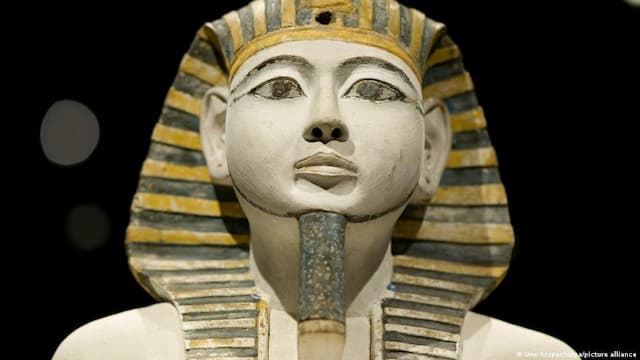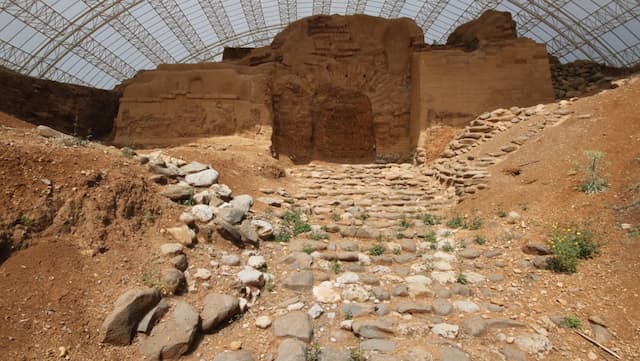Jesus as Saviour
Would you describe Jesus as your personal Saviour? That’s good, but that’s only a tiny fraction of what the Bible means when it calls Jesus Saviour.
Let’s try a story. What’s your favourite spy movie? You know those ones where our agents have been incarcerated in a foreign land and condemned to death. With meticulous planning, satellite intelligence, and drone support, we send in the commandos to bring them home. Commandos are the “saviours” in our culture.
The gospel is that kind of story, with more intrigue and less gunfire.
It starts with a world that’s gone feral, overrun by evil because it turned from God’s kingship. All the war and violence and manipulation we experience are the inevitable result of people grabbing power that should be in God’s hands. Grasping power doesn’t make us gods; it makes us inhumane.
God doesn’t leave us to destroy ourselves. But how can he rescue us? In spy movies, they call in more firepower, and the guy with the biggest gun wins. When it comes to power, God could have the biggest gun, but he doesn’t take that approach. God isn’t like the warmongers. He’s sovereign, but he doesn’t force himself on us.
God takes the powerless path. Entering the deadly world as a baby is not a safe plan. Jesus wouldn’t have made it to his second birthday if heaven’s intel. hadn’t warned them to skip the country.
In the wild, away from Herod’s seat of power, Jesus submits to heaven’s government (in baptism), and heaven announces him as the chosen Son, anointed with the Spirit, entrusted with the kingship. Instantly, he faces the temptation to use this power to benefit himself, to act like a superhero, to gain the kingship by aligning with evil.
Don’t underestimate the danger. Jesus’ cousin was decapitated for pointing out that Herod was an unfit ruler. Jesus gives Herod a wide berth, never visiting his towns, treating the old fox as irrelevant. Jesus doesn’t galvanize people to fight the darkness; he calls them to be the light. For three years, he heals and gives life to his people, in stark contrast to previous leaders who gave violence and death to their enemies.
Finally, the regal son of King David rides into his capital as his people cry, “Rescue us (hosanna), Son of David!” He overturns the existing authorities, those who run the temple. It’s meant to be the seat of God’s government on earth, but it’s occupied by rebels — insurgents who plan to kill God’s anointed ruler.
That’s when history comes to a head. The full extent of sin is revealed in the killing of God’s anointed. The king of the Jews is betrayed by his friends, condemned by their rulers, and executed by their oppressors as a public statement about who’s in power.
This was God’s rescue plan? Once again, healing and life had been crushed by violence and death.
But wait! On the third day, his body was not in the tomb. Heaven’s intel. agents explained that heaven had overruled his condemnation, rescuing him from death.
This was God’s radical rescue plan. Without violence — dealing life instead of death — God had restored his reign as ruler of heaven and earth. In destroying death, the foundation of evil’s grip, God had rescued his world. The resurrection of Jesus overturned the injustice that went all the way back to Abel.
The cross is God confronting evil without doing evil. The resurrection overturns evil and the power that supports it (death). The ascension enthrones God’s anointed at the right hand of the majesty on high, restoring heaven’s reign to the earth. Now Jesus reigns until all his enemies are under his feet. When no one is using death as the path to power, the last enemy is defeated and divine kingship of the earth is fully realized.
We must tell this big story of Jesus as Saviour of the world. It won’t do to give people a shrunken gospel that reduces Jesus to my personal Saviour, as if my list of sins is the problem. It’s billions of times bigger than me: we’re asking people to recognize Jesus as the one who saves the world.
So how do we ask people to respond? Don’t ask people to say, “I’m a sinner; please forgive me.” Ask them to say, “Jesus is Lord, because God raised him from the dead.” It’s about:
- recognizing Jesus as God’s appointed ruler, our Lord;
- trusting the radical strategy God used to restore his kingship: defeating evil (sin) not by giving death to his enemies but by giving life to his anointed.
The message we proclaim expects this response:
Romans 10 9 If you declare with your mouth, “Jesus is Lord,” and believe in your heart that God raised him from the dead, you will be saved. (NIV)
What others are saying
Luke 4:18-19 is Jesus’ own explanation of his saving mission.
F. Scot Spencer (a Baptist) comments in Luke, THNTC (Eerdmans, 2019), 111–114:
The strong liberation-redemptive thrust of this mission is signaled by the double use of aphesis … and broad application to those in various states of physical, psychological, social, economic, and political distress: the poor, the blind, the imprisoned – including those bound by overwhelming forces of demonization, debt and domination. This is the hardcore material and social gospel of Jubilee, rooted in liberated of depleted land and enslaved people for the flourishing of God’s entire creation. We should not rush to a ‘spiritual’ interpretation of Jesus’s saving mission divorced from material realities. …
Full salvation, healing, and knowledge of God will come for God’s people only if they share in God’s redemptive mission to others.
Related posts
- Saviour of the world
- God’s gift to the world (John 3:16)
Seeking to understand Jesus in the terms he chose to describe himself: son of man (his identity), and kingdom of God (his mission). Riverview College Dean
View all posts by Allen Browne











